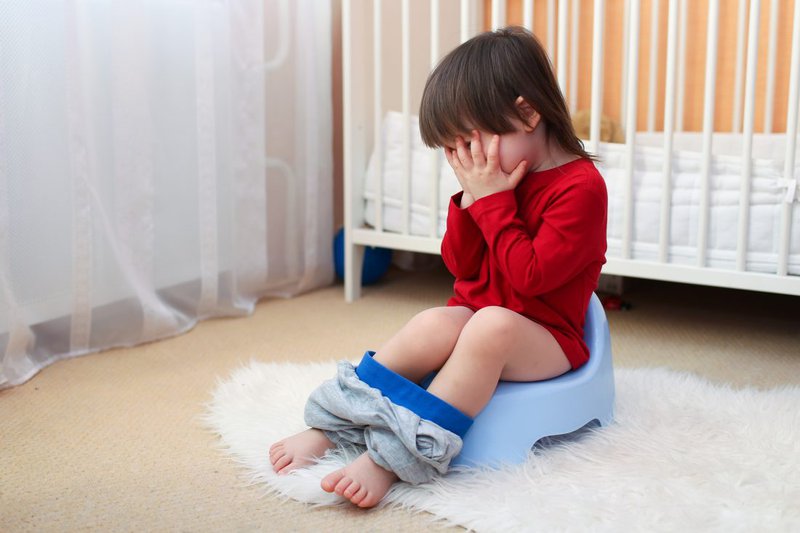Stomach gurgling in babies
This is an automatically translated article.
The phenomenon of stomach rumbling in babies is common in the early postpartum period and worries many parents. So is this phenomenon dangerous, causes and how to handle it? Let's find the answer through the sharing of the article below.
1. Causes of stomach rumbling in babies
Newborns present with abdominal bloating, frequent stomach rumblings, which may be due to an air blockage in the intestinal folds or other locations in the digestive system. Common causes of infant colic symptoms are:
1.1 Maternal dietary problems For nursing infants, breast milk is the main source of nutrition. If the mother eats any food, the baby will receive milk containing nutrients from that food. Therefore, if the mother eats strange foods, foods that are too greasy, high in protein, hot and spicy, rare dishes, salads, etc., infected with bacteria, stored for a long time, rancid, etc., she can do it. affect the quality of milk, causing the baby to suckle easily to have stomach upset and defecation.
1.2 Incorrect feeding Many babies are either exclusively bottle-fed or bottle-fed alongside breast-feeding. If the nipple of the bottle does not fit, the mother is feeding the baby improperly, the milk flows too slowly or too quickly, ... can cause the baby to swallow a lot of air into the stomach and lead to symptoms of colic. In addition, with formula-fed babies, if the mother mixes the milk in the wrong ratio or does not ensure the hygiene of the utensils, it will also cause the above phenomenon.
1.3 Babies can't absorb lactose in milk Lactose is the sugar found in milk and milk products. For some reason, babies may have to breastfeed too soon, the body does not produce enough enzymes to digest lactose. Because lactose builds up in the intestines, it causes colic in babies.
1.4 Other causes Colic symptoms in infants can be caused by other causes such as:
E. coli, Shigella, Salmonella or viruses from thumb sucking, foot sucking,... or sucking on tools such as pacifiers is not hygienic. These bacteria and viruses thrive, crowding out beneficial bacteria, disrupting intestinal microflora and leading to diarrhea; Due to the use of antibiotics: Side effects include abdominal bloating, constipation, and bowel movements.
2. Signs of a baby's stomach boil
Recognizing the signs of an infant with colic helps parents take timely remedial measures and take appropriate care of the child. Typical signs of this condition include:
The child's abdomen makes gurgling, rumbling sounds; Children often regurgitate milk and vomit; Babies cry a lot, especially at night, stop feeding; Children have diarrhea , defecation ; Children often have flatulence, belching, abdominal distention, ... The phenomenon of abdominal bloating in babies can be cured in 1 day but can also last for a whole week.
3. What should parents do before the baby's stomach rumbling?
When a child has a stomach upset with a rumbling stomach, flatulence, indigestion, parents should handle the following:
Change the breastfeeding position: If the child has a stomach upset due to sucking a lot of air, when feeding When the baby is nursing, the mother needs to adjust the appropriate position. When the baby is nursing, if the baby is fussy and the mother hears the baby's belly is boiling, quickly change the breastfeeding position. You can put your baby's chin on her shoulder, pat her back to let her burp out. In addition, the mother can also put the baby to lie on his back, gently bend the child's knees and legs continuously. If the baby is bottle-fed, the mother should let the baby latch on to the nipple to prevent the baby from swallowing a lot of air, causing stomach upset; Change in mother's diet: When a newborn baby has a bloated stomach, farts a lot and has frequent bowel movements, a mother needs to pay attention to her daily diet. If you are breastfeeding, you should not eat some of the following foods to avoid gas and bloating: Cabbage, cauliflower, soy products, tomatoes, oranges, tangerines, oily foods fat, spicy,... Mother should also add more fiber to her daily diet; Change the type of formula milk: In case the baby's stomach rumbles due to formula milk, parents should change to another type of milk for their baby. Priority should be given to cool milk, which contains a lot of fiber, is easy to digest, is low in protein and has the same protein composition as breast milk, so it has little or no lactose. In addition, parents should also mix formula for their baby's milk, always wash and sterilize bottles, milk-making tools, nipples, etc., before breastfeeding; Visit a doctor if the child has persistent abdominal bloating: If you have followed the above instructions but the baby's stomach rumbling condition has not improved much, the mother should take the baby to a pediatrician for advice on treatment. .
4. Preventing colic in babies
Newborns with abdominal bloating for a long time, continuous bowel movements will make the baby's digestive system unbalanced and reduce the function of absorbing nutrients. Therefore, parents need to know how to prevent the risk of colic in babies to ensure that the baby stays healthy:
Exclusive breastfeeding for the first years of life. If the mother has little milk, she can feed the baby many times to make the baby full and this is also a way to stimulate the mother's body to secrete more milk; In cases where it is imperative to use formula milk instead, mothers should carefully learn about the composition, amount of milk and how to prepare it. When buying milk and dairy products, mothers should pay attention to read the nutrition facts correctly in order to choose low-lactose milk to help the baby digest easier; Parents need to pay attention to mixing milk and feeding the baby properly: Mix milk before feeding about 5-10 minutes, let the bottle stand upright to increase the time to decompose air bubbles. Besides, it is advisable to gently stir the milk while mixing to avoid air bubbles; During breastfeeding, mothers should pay attention to choose low-fat, hot foods. Instead, mothers should eat more vegetables and fruits, drink at least 2 liters of water / day. Colic in infants is a condition of increased bowel movements due to many causes. Mothers should refer to how to prevent and handle this condition to help their baby be healthier and have better digestion.
Please dial HOTLINE for more information or register for an appointment HERE. Download MyVinmec app to make appointments faster and to manage your bookings easily.
This article is written for readers from Sài Gòn, Hà Nội, Hồ Chí Minh, Phú Quốc, Nha Trang, Hạ Long, Hải Phòng, Đà Nẵng.





